The Best Operating Systems for Security, Privacy, and Productivity for Legal Professionals in 2024.
• public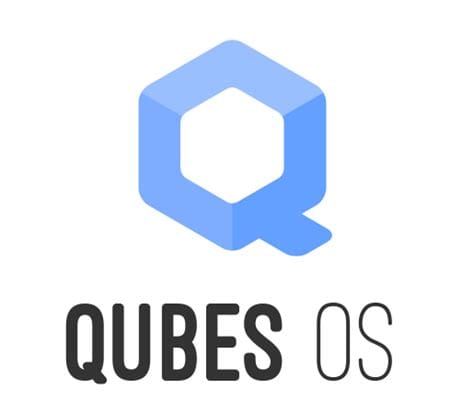
Navigating the digital landscape securely and privately is crucial for legal professionals who handle sensitive and confidential information daily. Choosing the right operating system (OS) can significantly enhance your cybersecurity posture while ensuring productivity. Here's a detailed look at the best OS for legal professionals in 2024, based on security, privacy, and productivity ratings.
Top 9 Operating Systems
- Qubes OS
- Tails OS
- Whonix
- Kicksecure
- OpenBSD
- Fedora Silverblue
- Alpine Linux
- macOS
- Windows OS
1. Qubes OS - 13 ⭐ Total
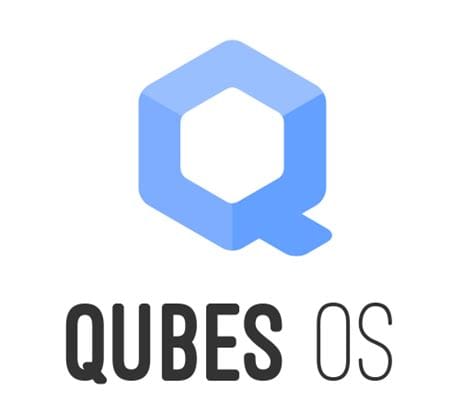
Security: ⭐⭐⭐⭐⭐
Privacy: ⭐⭐⭐⭐⭐
Productivity: ⭐⭐⭐
Overview:
Qubes OS stands out as the top choice for legal professionals prioritising security and privacy. This advanced security-focused operating system uses a unique approach by compartmentalising different applications and functions into isolated virtual machines (VMs). This ensures that if one VM is compromised, the rest of the system remains unaffected. While having some Linux knowledge is beneficial for initial setup and customisation, even users without this expertise can learn to use Qubes OS effectively, although there may be a learning curve at the beginning. Some companies specialise in provide Qubes OS computer, one of these companies is Nitrokey. The advantage of buying a Qubes computer through Nitrokey is you know the hardward is support, but Nitrokey even offer Heads with certain computers. Heads greatly enchances security through temper detection with measured boot, read more about heads here or visit NitroKey's store here.
Security:
Qubes OS achieves the highest marks in security due to its innovative architecture. It creates isolated environments called qubes, which run individual applications or groups of applications. Legal professionals can create virtualised disposable VMs, ensuring that even if malware is encountered while browsing, it will be wiped clean once the VM is closed. Standard system VMs such as sys-net, sys-firewall, and sys-usb can be configured as disposable VMs. You could even enchance the disposable sys-VMs by using Kicksecure, instead of using fedora or debian, enhancing security further. Additionally, the Mirage firewall can be implemented as firewall for even more robust protection.
Privacy:
Privacy is equally top quaility in Qubes OS, earning it a five-star rating. The isolation of activities into separate qubes ensures that sensitive data remains compartmentalised. Legal professionals can handle confidential client information in a secure environment without the risk of data leakage between applications. One of the standard template VMs in Qubes is Whonix OS, which is designed to provide ultimate privacy by routing all internet traffic through the Tor network, ensuring anonymity and protecting against surveillance. This segregation is critical for maintaining-client privilege and protecting sensitive legal documents.
Productivity:
While Qubes OS is highly secure and private, its productivity rating is slightly lower. Setting up and customising the OS can require some Linux knowledge, especially when running non-standard operating systems. However, most Linux distributions work with minimal configuration. Qubes also supports running Windows OS (from versions 7 to 11), which can be beneficial for legal professionals who rely on specific Windows-based applications.
Key Features for Legal Professionals:
- Isolated Environments:
Allows the creation of separate VMs for different tasks, enhancing security and privacy.
- Disposable Enviroments:
Can create disposable VM, even for system services to mitigate persistent threats.
- Cross-Platform Compatibility:
Supports multiple operating systems, including various Linux distributions and Windows versions.
- Advanced Security Add-Ons:
Easy to set up Kicksecure as sys-VMs, possible to use the Mirage firewall for additional security layers amd many other add-ons.
- Whonix Integration:
Provides VMs specifically designed for privacy by leveraging the Tor network.
Considerations:
While Qubes OS offers unparalleled security and privacy, legal professionals should be prepared for a potential learning curve. Customising and optimising the OS for seamless operation might require some technical expertise. However, the investment in learning can be invaluable given the enhanced protection of sensitive legal data.
Qubes OS is an excellent choice for legal professionals who prioritise security and privacy without significantly compromising productivity. Its innovative use of virtualisation and compartmentalisation makes it a robust platform for handling sensitive legal matters securely.
Read more about Qubes OS here.
2. Tails OS - 11 ⭐ Total
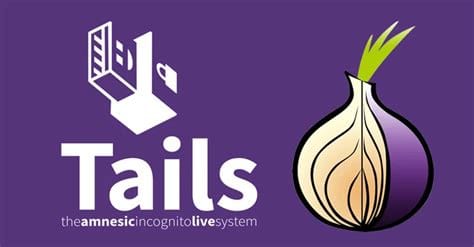
Security⭐⭐⭐⭐
Privacy ⭐⭐⭐⭐⭐
Productivity: ⭐⭐
Overview:
Tails OS, short for The Amnesic Incognito Live System, is a live operating system that you can boot from a USB stick or DVD. It’s designed for privacy and anonymity, making it an excellent choice for legal professionals who need to handle sensitive information securely. One of its key advantages is the ability to use any computer without leaving a trace, providing flexibility and mobility.
Security:
Tails OS receives a high security rating due to its robust design. Tails OS allows you to use any computer securely, without needing to carry a laptop. Tails runs entirely in a computer’s memory (RAM) and does not write anything to the hard drive, meaning that once you shut down, all traces of your activity are wiped. Tails includes a feature called “amnesia,” ensuring it will be completely clean the next time you run it. For those who need to save files or configurations, Tails offers the option to create a persistent storage area on the USB stick, which is encrypted for security.
Privacy:
Privacy is where Tails OS truly excels, earning a perfect five-star rating. It is specifically designed to preserve privacy and anonymity. All internet connections are routed through the Tor network, which anonymises your IP address and encrypts your traffic, making it difficult for anyone to trace your online activities. Tails also includes several privacy-focused applications, such as, but jot limited to, the Tor Browser for anonymous browsing, Thunderbird for encrypted email, OnionShare secure for file sharing and instant messaging. This makes it a powerful tool for legal professionals who need to communicate confidentially and ensure their activities remain private.
Productivity:
Tails OS is rated slightly lower in productivity. While it is extremely private with good security, it is not designed for everyday use or extensive software installations. The live nature of the OS means you have to boot from the USB stick every time, which can be less convenient for continuous work. However, for specific tasks that require high security and privacy, such as handling sensitive client information or conducting private communications, Tails is exceptionally productive. Legal professionals can benefit from using Tails for these specific scenarios while using a more conventional OS for routine tasks.
Key Features for Legal Professionals:
- Amnesia Feature:
Ensures no data is left behind after use, maintaining complete privacy, enhancing mobility and flexibility
- Persistent Storage:
Option to create encrypted persistent storage on the USB stick for saving files and settings securely.
- Tor Network Integration:
Routes all internet connections through Tor, anonymising IP addresses and encrypting traffic.
- Privacy-Focused Applications:
Includes tools for encrypted email, secure messaging, and anonymous browsing.
Considerations:
While Tails OS offers unparalleled privacy and strong security, it may not be suitable for all everyday tasks due to its live USB nature and the need to reboot for each use. Legal professionals should consider using Tails alongside another OS for routine work and switch to Tails when handling highly sensitive information or when enhanced privacy is required.
Tails OS is an excellent choice for legal professionals who need to ensure their activities remain private and their data secure. Its ability to run on any computer without leaving a trace, combined with its strong privacy tools, makes it an invaluable asset for specific high-security tasks. However, for continuous productivity, it is best used in conjunction with another, more conventional operating system.
You can read more about Tails OS here. If you wish to have a dedicated computer to use with Tails OS, we can recommend contacting Leah Rowe at Minifree Ltd and request a computer without any hard disks installed. Minifree have many great products, which comes pre-installed with LibreBoot and, therefore, perfect for a dedicated Tails OS machine.
3. Whonix - 10 ⭐ Total
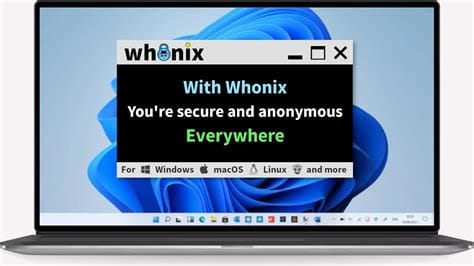
Security: ⭐⭐⭐
Privacy: ⭐⭐⭐⭐⭐
Productivity: ⭐⭐
Overview:
Whonix is a privacy-focused operating system designed to run inside a virtual machine (VM), leveraging the Tor network to ensure that all internet traffic is anonymised and encrypted. This makes Whonix an excellent choice for legal professionals who need to protect sensitive information and maintain privacy in their digital communications. Whonix operates as a VM and does not create other VMs; rather, it is intended to be used within an existing VM infrastructure such as VirtualBox or KVM.
Security:
Whonix receives a solid three-star rating for security due to its robust use of virtualisation and Linux hardening techniques. It consists of two components: the Whonix-Gateway, which routes all internet traffic through Tor, and the Whonix-Workstation, which is isolated from direct internet access except through the Gateway. This architecture significantly reduces the risk of malware and other security threats. By running inside a VM, Whonix adds an additional layer of isolation, protecting the host system from potential attacks. Moreover, being inside a VM helps prevent certain types of malware that are designed to detect and avoid running in virtualised environments to escape analysis by security researchers.
Privacy:
Privacy is where Whonix truly excels, earning a perfect five-star rating. The system is designed to ensure that all online activity is routed through the Tor network, anonymising the user's IP address and encrypting all traffic. This setup makes it extremely difficult for anyone to trace online activities back to the user. For legal professionals, this means that sensitive client communications and confidential research can be conducted with a high degree of privacy. Whonix also includes privacy-enhancing tools such as secure messaging and encrypted email, further bolstering its privacy capabilities. Additionally, Whonix has built-in privacy measures to mitigate certain attacks aimed at de-anonymising Tor users, providing an extra layer of protection.
Productivity:
While Whonix excels in privacy and offers good security, it scores lower in productivity primarily because all internet traffic is routed through Tor. This can result in slower connection speeds and restricted access to some websites, as many websites block Tor nodes. Additionally, being a Linux-based OS, certain applications that are available on other platforms might not be readily available or require additional configuration. Legal professionals might find these aspects limit their efficiency when using Whonix for routine tasks, but it remains highly effective for tasks requiring heightened privacy.
Key Features for Legal Professionals:
- Dual Virtual Machine Setup:
Utilises a gateway and workstation model to route all internet traffic securely through the Tor network.
- Tor Network Integration:
Provides anonymity by routing all online activities through Tor, protecting your IP address and encrypting traffic.
- Privacy-Enhancing Tools:
Includes secure messaging, encrypted email, and other privacy-focused applications.
- Extra Layer of Security:
The use of virtualisation adds an additional layer of protection against malware and system compromises.
- Linux Hardening:
Enhances security through robust Linux hardening techniques, further protecting the system.
- Additional Privacy Measures:
Built-in mechanisms to mitigate de-anonymisation attacks against Tor users, enhancing overall privacy.
Considerations:
While Whonix offers exceptional privacy and good security, it may not be suitable for all day-to-day tasks due to its reliance on the Tor network, which can impact internet speeds and access to certain websites. Legal professionals should consider using Whonix for specific tasks that require the highest levels of privacy and anonymity, while relying on another operating system for routine activities.
Whonix is an excellent choice for legal professionals who need to ensure their online activities remain private and secure. Its innovative use of dual virtual machines and integration with the Tor network make it a powerful tool for protecting sensitive information. However, for continuous productivity, it is best used in conjunction with another, more conventional operating system.
You can read more about Whonix here.
4. Kicksecure - 9 ⭐ Total
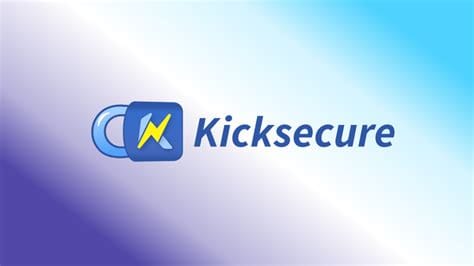
Security: ⭐⭐⭐
Privacy: ⭐⭐⭐
Productivity: ⭐⭐⭐
Overview:
Kicksecure is a security-focused operating system designed to provide robust protection against a wide range of threats while maintaining usability. It can run on bare metal through distro morphing Debian 12, allowing it to be used as a primary operating system for legal professionals who require strong security without sacrificing productivity.
Security:
Kicksecure earns a solid three-star rating for security due to its comprehensive hardening measures. The operating system includes various security enhancements such as a hardened kernel, proactive security patches, and mandatory access control policies. These features help protect against common vulnerabilities and exploits, making it a reliable choice for environments that require strong security. Kicksecure also includes application sandboxing and enhanced firewall configurations, adding layers of defense against potential threats.
Privacy:
Kicksecure provides a good level of privacy, earning three stars in this category. It incorporates privacy-focused configurations and tools designed to protect user data and ensure confidential communications. However, unlike systems that route all traffic through Tor (such as Whonix), Kicksecure does not inherently provide the same level of anonymity. It does, however, support the installation of privacy tools such as VPNs and encrypted communication applications, which can enhance privacy when properly configured.
Productivity:
Kicksecure scores three stars in productivity due to its balance of security features and usability. Since it is based on Debian 12, it benefits from a wide range of available software and compatibility with many applications that legal professionals use daily. The ability to run on bare metal means it can be set up as a primary OS without the overhead of virtualisation, which can improve performance and usability for routine tasks. Its familiar Debian-based environment makes it easier for users who are accustomed to Linux systems to transition seamlessly.
Key Features for Legal Professionals:
- Bare Metal Installation:
Can be installed directly on hardware through distro morphing Debian 12, offering robust performance.
- Hardened Kernel and Security Patches:
Enhances protection against vulnerabilities and exploits.
- Application Sandboxing:
Isolates applications to prevent them from affecting the entire system in case of compromise.
- Privacy Tools Support:
Allows the installation of additional privacy tools such as VPNs and encrypted communication apps.
- Debian-Based Environment:
Ensures compatibility with a wide range of software, enhancing productivity.
Considerations:
While Kicksecure provides a good balance of security, privacy, and productivity, it may require some configuration to achieve optimal privacy protections. Legal professionals should consider using additional privacy tools and regularly updating the system to maintain security and privacy standards. Its Debian-based environment makes it a versatile choice for those familiar with Linux, providing a secure and productive platform for handling sensitive legal information.
Kicksecure is a solid choice for legal professionals who need a secure and productive operating system. Its robust security features and compatibility with Debian software make it suitable for everyday use while protecting sensitive information. For those who require enhanced privacy, additional tools can be installed to complement the system's inherent protections.
You can read more about Kicksecure here.
5. OpenBSD - 9 ⭐ Total
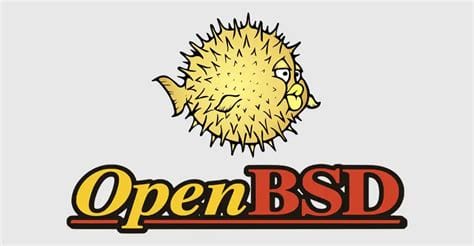
Security: ⭐⭐⭐⭐⭐
Privacy: ⭐⭐⭐
Productivity: ⭐
Overview:
OpenBSD is renowned for its security-centric design, making it one of the most secure operating systems available. It is particularly suitable for legal professionals who prioritize security above all else. While its strong focus on security and simplicity results in a more complex setup for general productivity tasks, it remains an excellent choice for environments where data integrity and protection are paramount.
Security:
OpenBSD receives a perfect five-star rating for security due to its rigorous code auditing practices and proactive security measures. The development team follows a security-first philosophy, regularly conducting thorough code reviews and integrating numerous security features by default. OpenBSD includes features like W^X (Write XOR Execute), ASLR (Address Space Layout Randomization), and strict default configurations that minimize vulnerabilities. Its reputation for reliability and security makes it a trusted choice for systems requiring the highest levels of protection.
Privacy:
OpenBSD provides a solid level of privacy, earning three stars in this category. The system does not include any telemetry or tracking features, ensuring that user activities are not logged or shared. However, OpenBSD does not inherently focus on advanced privacy features like those found in Tails or Whonix. Users can enhance privacy by configuring and installing additional privacy tools, such as encrypted email and secure communication applications. While it does not offer built-in anonymity features, its strong security foundation helps protect against unauthorized access and data breaches.
Productivity:
OpenBSD scores lower in productivity, with just one star. This is primarily due to its minimalist approach and the focus on security over user-friendly features. The system's out-of-the-box experience is more suitable for users with a technical background and familiarity with Unix-like systems. The available software repositories are smaller compared to more mainstream operating systems, and some applications may require manual compilation and configuration. Legal professionals might find the setup process and day-to-day use less convenient compared to other OS options, but for those who can navigate its complexities, OpenBSD provides unparalleled security.
Key Features for Legal Professionals:
- Rigorous Code Auditing:
Ensures that the system remains secure and vulnerabilities are promptly addressed.
- Proactive Security Measures:
Includes advanced security features like W^X, ASLR, and default configurations that enhance system integrity.
- No Telemetry or Tracking:
Guarantees that user activities are not logged or shared, maintaining a high level of privacy.
- Minimalist Design:
Reduces the attack surface by including only essential components, enhancing overall security.
Considerations:
While OpenBSD offers exceptional security, legal professionals should be aware of its limitations in terms of productivity and ease of use. The minimalist design and technical setup might pose challenges for users unfamiliar with Unix-like systems. Additional privacy tools can be configured, but this requires a higher level of technical expertise. OpenBSD is best suited for environments where security is the top priority and where users have the necessary skills to manage its more complex configuration and operation.
OpenBSD is an excellent choice for legal professionals who require the highest levels of security and are comfortable with a more technical and minimalist operating system. Its robust security features and proactive approach to vulnerabilities make it ideal for protecting sensitive legal data. However, for continuous productivity, it may be beneficial to use OpenBSD in conjunction with another, more user-friendly operating system.
You can read more about OpenBSD here.
6. Fedora Silverblue - 8 ⭐ Total
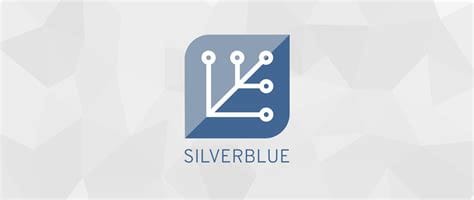
Security: ⭐⭐⭐
Privacy: ⭐⭐
Productivity: ⭐⭐⭐
Overview:
Fedora Silverblue is an immutable variant of Fedora Workstation, designed to offer a stable and secure environment for desktop users. It is particularly appealing for legal professionals who need a reliable operating system that maintains consistency and integrity over time. The OS emphasises immutability and containerisation, making it a strong contender for those who require a balance of security, privacy, and productivity. As a Linux distribution, it provides the flexibility and robustness associated with the Linux ecosystem, which is highly valued in professional environments.
Security:
Fedora Silverblue earns three stars for security due to its robust architecture and proactive security features. The OS is built on an immutable file system, meaning that the core system files are read-only. This design significantly reduces the risk of system corruption and makes it harder for malware to persist. Silverblue also benefits from Fedora’s integration of SELinux (Security-Enhanced Linux), which enforces strict access controls and security policies. Regular updates and atomic updates ensure that the system is always in a secure state, as updates are applied in full or not at all, reducing the risk of incomplete updates that could leave the system vulnerable.
Privacy:
Privacy is rated at two stars for Fedora Silverblue. While the system itself does not include invasive telemetry, it does not inherently focus on advanced privacy features. Users have the option to enhance privacy by installing and configuring additional tools such as VPNs, encrypted communication applications, and privacy-focused browsers. The containerisation of applications also provides some level of isolation, which can help protect user data from unauthorised access. However, for legal professionals seeking built-in anonymity features like those in Tails or Whonix, Silverblue may require more manual configuration.
Productivity:
Fedora Silverblue excels in productivity, earning three stars in this category. Its design ensures stability and reliability, which are crucial for maintaining a consistent workflow. The immutable file system and atomic updates mean that legal professionals can focus on their tasks without worrying about system instability or the need for frequent troubleshooting. The OS supports a wide range of software, and its containerisation approach allows users to run applications in isolated environments, minimising conflicts and enhancing system performance. The availability of productivity tools and a user-friendly interface makes it suitable for everyday use.
Key Features for Legal Professionals:
- Immutable File System:
Ensures system integrity by keeping core files read-only, reducing the risk of corruption and malware persistence.
- Atomic Updates:
Provides consistent and reliable updates, ensuring the system is always in a secure state.
- SELinux Integration:
Enforces strong security policies, protecting against unauthorised access and data breaches.
- Containerisation:
Allows applications to run in isolated environments, reducing conflicts and enhancing performance.
- User-Friendly Interface:
Supports a wide range of productivity tools and offers a familiar and intuitive user experience.
- Linux Flexibility:
Benefits from the extensive Linux ecosystem, providing powerful tools and customisation options for professional use.
Considerations:
While Fedora Silverblue provides a solid balance of security, privacy, and productivity, it may require additional configuration to achieve optimal privacy protections. Legal professionals should consider installing and configuring privacy-focused tools to complement the system's inherent features. Additionally, as with other Linux-based systems, some specialised software commonly used in the legal industry may not be readily available or may require additional configuration. The containerisation and immutability aspects make it a stable and reliable choice for daily use, but users seeking built-in advanced privacy features may need to look at other options or augment Silverblue with additional software.
Fedora Silverblue is a strong choice for legal professionals who need a reliable and secure operating system that supports productivity. Its immutable design and integration of robust security features ensure system stability and protection against threats. While it may require some additional configuration to achieve enhanced privacy, it offers a balanced solution for those who need to handle sensitive legal information securely.
You can read more about Fedora Silverblue here.
7. Alpine Linux - 8 ⭐ Total
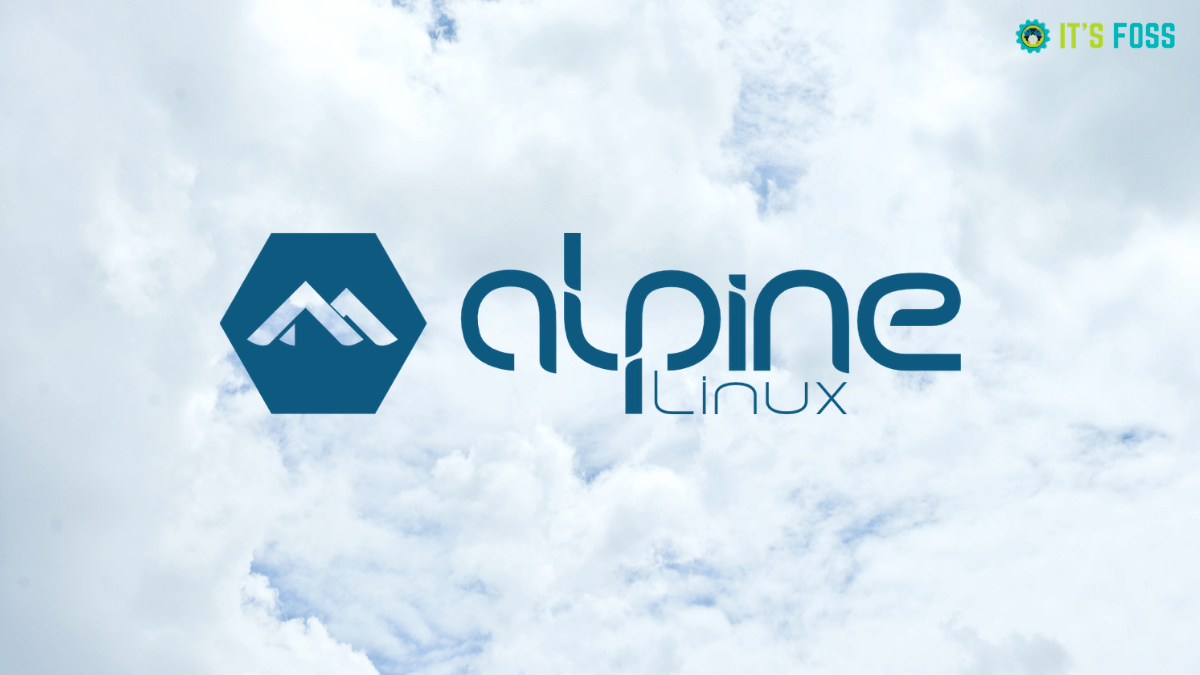
Security: ⭐⭐⭐
Privacy: ⭐⭐
Productivity: ⭐⭐⭐
Overview:
Alpine Linux is a security-oriented, lightweight Linux distribution based on musl libc and busybox. It is designed for power users who value simplicity, security, and efficiency. Legal professionals who need a robust and streamlined OS that can run on minimal resources will find Alpine Linux to be a highly reliable choice. Its minimalist approach reduces potential attack surfaces, contributing to its strong security posture.
Security:
Alpine Linux earns three stars for security due to its focus on minimalism and security features. The use of musl libc and busybox ensures a smaller and more secure codebase, reducing the risk of vulnerabilities. Alpine also supports PaX and grsecurity patches, enhancing its ability to protect against various exploits. The system's simplicity further reduces the risk of misconfiguration and potential attack vectors, making it a secure choice for professionals who need a reliable environment for handling sensitive legal information.
Privacy:
Privacy is rated at two stars for Alpine Linux. While the system does not inherently focus on privacy features like Tails or Whonix, its minimalistic design ensures that there are fewer components that could potentially compromise user data. Users can enhance privacy by installing and configuring additional tools such as VPNs, Tor, and encrypted communication applications. However, the absence of built-in privacy-enhancing features means that achieving optimal privacy requires additional effort and expertise from the user.
Productivity:
Alpine Linux excels in productivity, earning three stars in this category. Its lightweight and efficient design allows it to run on a wide range of hardware, from powerful desktops to older, less capable machines. The system's simplicity and stability make it a reliable platform for daily tasks. Additionally, Alpine Linux's package management system, APK, provides access to a wide range of software, although some specialised applications commonly used in the legal industry may require additional configuration or may not be readily available. The minimalistic approach ensures that the system remains fast and responsive, supporting a productive workflow for legal professionals.
Key Features for Legal Professionals:
- Minimalist Design:
Reduces the attack surface and potential vulnerabilities, enhancing overall security.
- Lightweight and Efficient:
Runs well on a wide range of hardware, ensuring responsiveness and reliability.
- Security Patches:
Supports PaX and grsecurity patches, providing additional protection against exploits.
- Customisable Privacy:
Allows users to install and configure privacy-focused tools such as VPNs and Tor.
- APK Package Management:
Provides access to a wide range of software, supporting productivity.
Considerations:
While Alpine Linux offers a solid balance of security, privacy, and productivity, it may require additional configuration to achieve enhanced privacy protections. Legal professionals should consider installing and configuring privacy-focused tools to complement the system's inherent features. As with other Linux-based systems, some specialised software commonly used in the legal industry may not be readily available or may require additional configuration. However, its lightweight and efficient design make it an excellent choice for those who need a reliable and fast operating system.
Alpine Linux is a strong choice for legal professionals who need a secure and productive operating system that runs efficiently on a wide range of hardware. Its minimalist design and focus on security make it a reliable platform for handling sensitive legal information. While it may require some additional configuration to achieve enhanced privacy, it offers a balanced solution for those who need to maintain a productive workflow while ensuring the security of their data.
You can read more about Alpine Linux here.
8. MacOS - 7 ⭐ Total
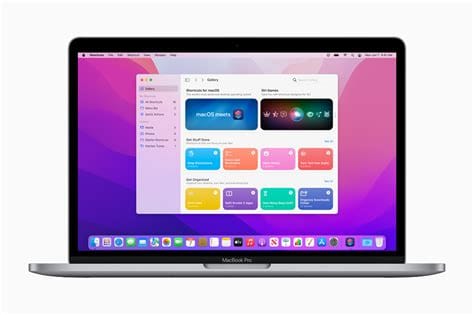
Security: ⭐⭐
Privacy: ⭐
Productivity: ⭐⭐⭐⭐
Overview:
MacOS, developed by Apple, is widely used in professional environments due to its seamless integration with Apple's hardware and ecosystem. For legal professionals, macOS offers a user-friendly interface and a wide array of productivity tools. However, it scores lower on security and privacy compared to more specialised operating systems designed with these aspects in mind.
Security:
macOS earns two stars for security. Apple has implemented several security features to protect user data and prevent unauthorized access. These include System Integrity Protection (SIP), which restricts root access to critical system files, and Gatekeeper, which ensures that only trusted software runs on the system. Additionally, macOS includes a built-in firewall and offers FileVault for full-disk encryption. Despite these features, macOS is a popular target for malware and phishing attacks due to its widespread use, necessitating vigilant use of security practices and additional software solutions to maintain robust protection.
Privacy:
Privacy is rated at one star for macOS. While Apple has made strides in protecting user privacy with features like app permission controls and data encryption, there are concerns about data collection and tracking. By default, macOS collects and transmits various types of data to Apple, including usage statistics and location information, which can be a concern for privacy-conscious users. Users can mitigate some of these issues by adjusting privacy settings and using additional privacy-focused tools, but achieving a high level of privacy requires proactive management.
Productivity:
macOS excels in productivity, earning four stars in this category. It offers a rich ecosystem of productivity tools, including the iWork suite (Pages, Numbers, Keynote), and seamless integration with other Apple devices through features like Handoff, Continuity, and iCloud. The operating system is known for its stability and user-friendly interface, which can enhance workflow efficiency. Additionally, macOS supports a wide range of third-party applications that are essential for legal professionals, such as Microsoft Office, Adobe Acrobat, and various legal practice management software.
Key Features for Legal Professionals:
- System Integrity Protection (SIP):
Restricts root access to critical system files, enhancing security.
- Gatekeeper:
Ensures only trusted software runs on the system.
- Built-in Firewall:
Helps to protect against network-based threats.
- Productivity Tools:
Includes the iWork suite and supports a wide range of third-party applications essential for legal work.
- Seamless Integration:
Works well with other Apple devices, enhancing productivity and ease of use.
Considerations:
While macOS provides a solid balance of security and productivity, legal professionals should be aware of its privacy limitations. Adjusting privacy settings and using additional privacy-focused tools can help mitigate some concerns, but those needing good privacy might need to look elsewhere. Additionally, the popularity of macOS makes it a frequent target for malware, so it is important to implement strong security practices.
MacOS is a strong choice for legal professionals who need a reliable and productive operating system. Its integration with Apple's hardware and ecosystem, along with its wide range of productivity tools, make it suitable for everyday use. However, for those who prioritise privacy and security, additional measures are necessary to address its limitations in these areas.
You can read more about macOS here.
9. Windows OS - 7 ⭐ Total
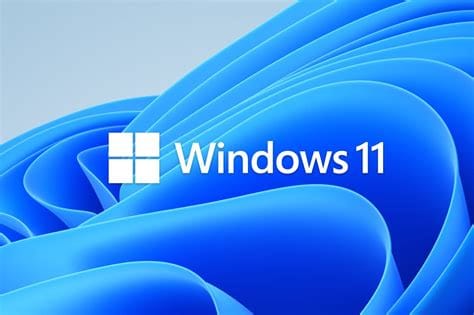
Security: ⭐
Privacy: ⭐
Productivity: ⭐⭐⭐⭐⭐
Overview:
Windows OS, developed by Microsoft, is one of the most widely used operating systems globally, particularly in professional and enterprise environments. For legal professionals, Windows offers an extensive range of productivity tools and compatibility with industry-specific software. However, it scores lower on security and privacy compared to more specialised operating systems.
Security:
Windows OS earns one star for security. While Microsoft has implemented several security features such as Windows Defender, BitLocker, and regular security updates, Windows remains a frequent target for malware, ransomware, and phishing attacks due to its widespread use. Legal professionals need to be vigilant and adopt additional security measures, such as third-party antivirus software, robust firewalls, and regular system updates to mitigate these risks. The operating system's default settings may not always prioritise security, requiring users to make manual adjustments to enhance their security posture.
Privacy:
Privacy is rated at one star for Windows OS. There are significant concerns about data collection and user tracking in Windows. By default, Windows collects a variety of data, including telemetry and usage statistics, which are sent back to Microsoft. While some of these settings can be adjusted to improve privacy, the level of data collection remains a concern for privacy-conscious users. Legal professionals handling sensitive information must be proactive in configuring privacy settings and using additional privacy tools such as VPNs and encrypted communication applications to safeguard their data.
Productivity:
Windows OS excels in productivity, earning five stars in this category. It offers a comprehensive suite of productivity tools, including Microsoft Office, OneDrive, and various third-party applications essential for legal work. The operating system supports a wide range of legal practice management software, making it an industry standard in many law firms. Windows also provides a user-friendly interface and extensive support for hardware and software, ensuring that legal professionals can maintain a high level of efficiency and productivity in their daily tasks.
Key Features for Legal Professionals:
- Windows Defender:
Built-in antivirus protection to guard against malware and other threats.
- Extensive Software Support:
Compatible with a wide range of legal practice management software and productivity tools.
- User-Friendly Interface:
Intuitive design that supports productivity and ease of use.
Considerations:
While Windows OS provides excellent productivity tools and compatibility with industry-specific software, legal professionals should be aware of its limitations in security and privacy. It is essential to adopt additional security measures and configure privacy settings to protect sensitive information. The prevalence of malware and data collection practices necessitates a proactive approach to maintain a secure and private environment.
Windows OS is a robust choice for legal professionals who need a productive and compatible operating system. Its extensive range of productivity tools and support for legal software make it suitable for everyday use. However, those who prioritise advanced security and privacy may need to take additional steps to address its limitations in these areas.
Read more about Windows OS here.

